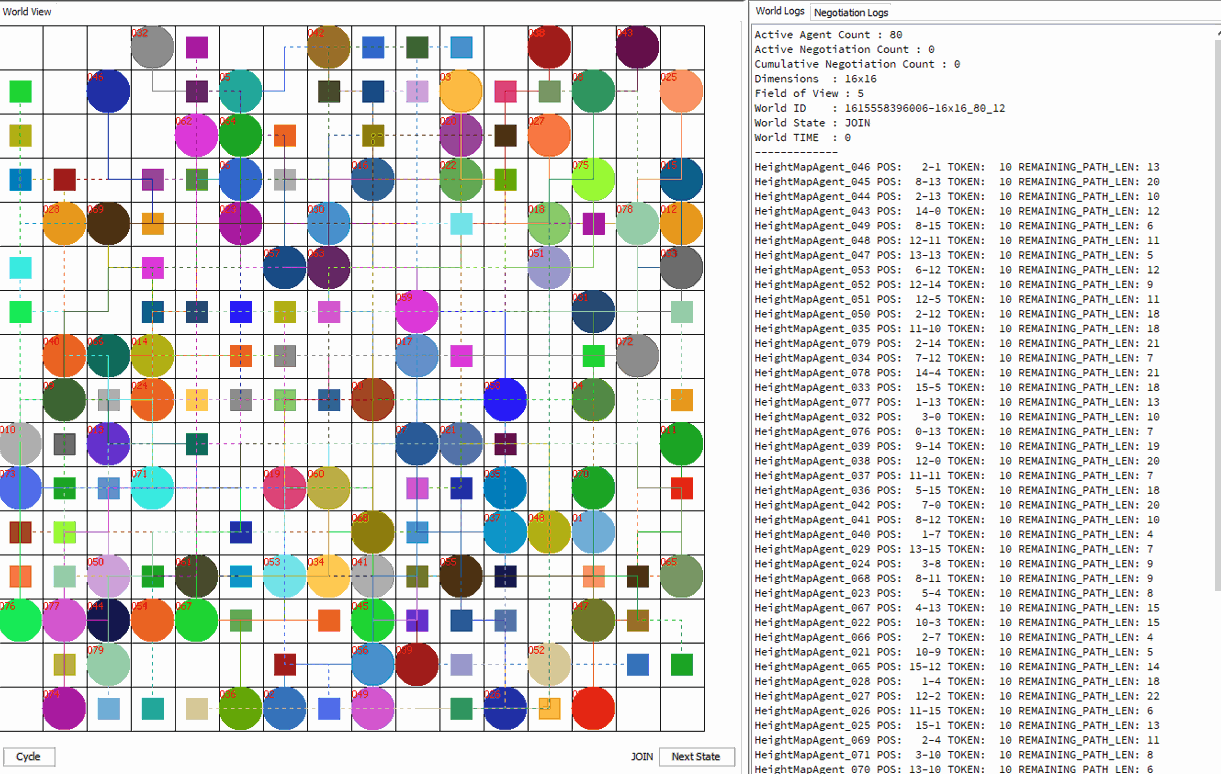Decentralized Multi-Agent Path Finding (Dec-MAPF)

Bilateral Negotiation for Decentralized MAPF
Decentralized Multi-Agent Path Finding (MAPF) is a challenging problem in the field of artificial intelligence that involves multiple agents moving in a shared environment with the objective of reaching their individual goals while avoiding collisions with other agents. In recent years, bilateral negotiation has emerged as a promising approach for solving this problem, allowing agents to negotiate with each other to find mutually beneficial paths and avoid collisions.Bilateral negotiation is a type of negotiation where two parties engage in a dialogue to reach an agreement that is acceptable to both parties. In the context of decentralized MAPF, this means that agents engage in a dialogue with each other to find paths that are mutually beneficial and avoid collisions. Bilateral negotiation can be particularly useful in situations where there are conflicting goals and limited resources, as it allows agents to cooperate and coordinate their actions to achieve their objectives.
One of the key advantages of bilateral negotiation for decentralized MAPF is that it allows agents to take into account the preferences and constraints of other agents when planning their own paths. This is particularly important in situations where agents have conflicting goals or constraints, as it allows them to find paths that are acceptable to all parties. For example, if two agents need to pass through the same narrow corridor to reach their respective goals, they can negotiate with each other to find a solution that allows them both to pass through the corridor without colliding.
Bilateral negotiation for decentralized MAPF can be implemented using a variety of approaches, including game theory, heuristic search, and constraint programming. One popular approach is to use a combination of heuristic search and game theory, where agents use heuristic search to generate candidate paths and game theory to evaluate the potential benefits of each path and negotiate with other agents.
Despite its advantages, bilateral negotiation for decentralized MAPF is not without its challenges. One of the biggest challenges is scalability, as the number of possible paths and negotiations between agents can quickly become overwhelming as the number of agents and the complexity of the environment increase. Additionally, bilateral negotiation requires agents to have accurate models of the environment and other agents, which can be difficult to obtain in practice.
Despite these challenges, bilateral negotiation remains a promising approach for solving decentralized MAPF problems. With continued research and development, it has the potential to enable more efficient and effective coordination between agents, ultimately leading to better performance and outcomes in shared environments.
